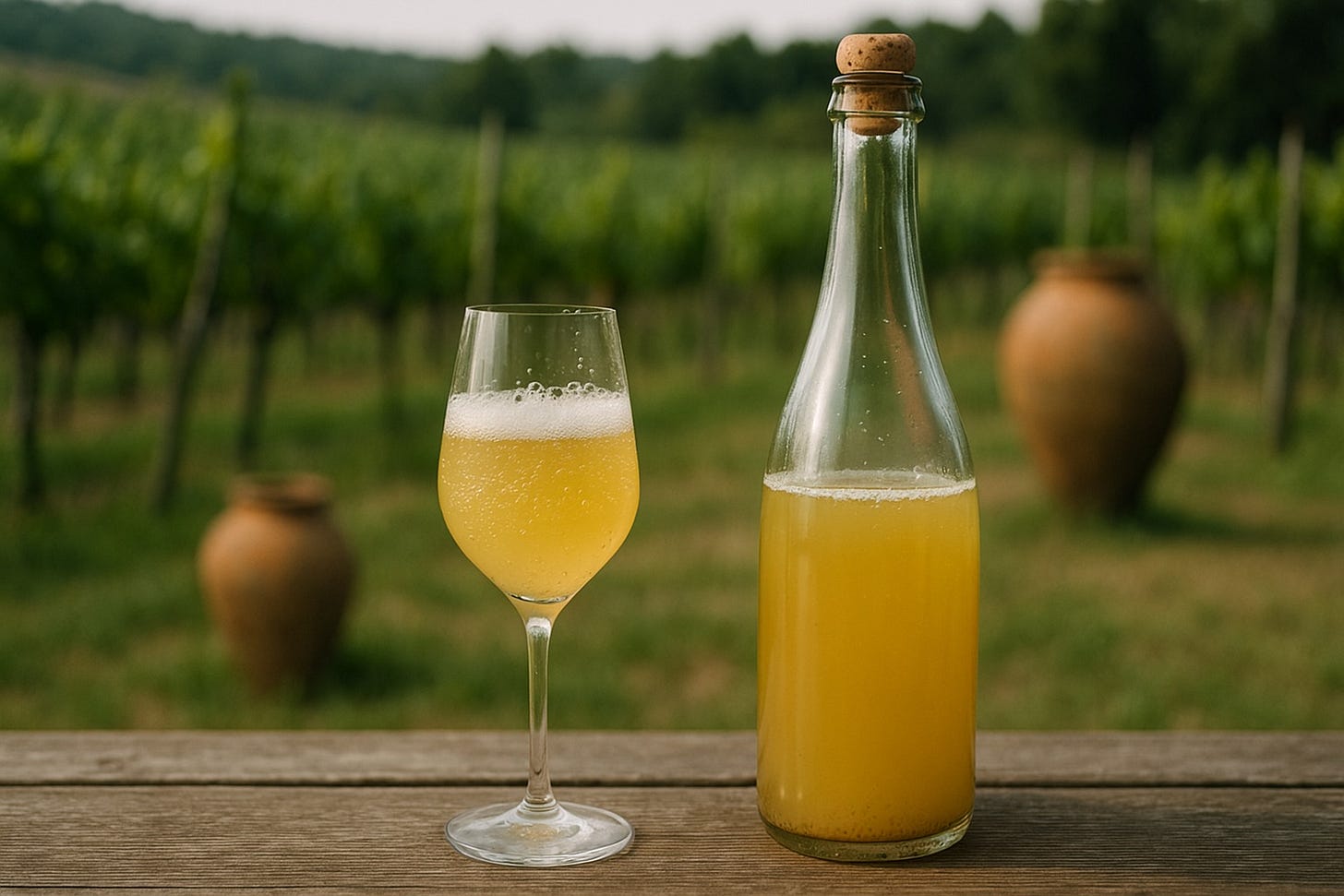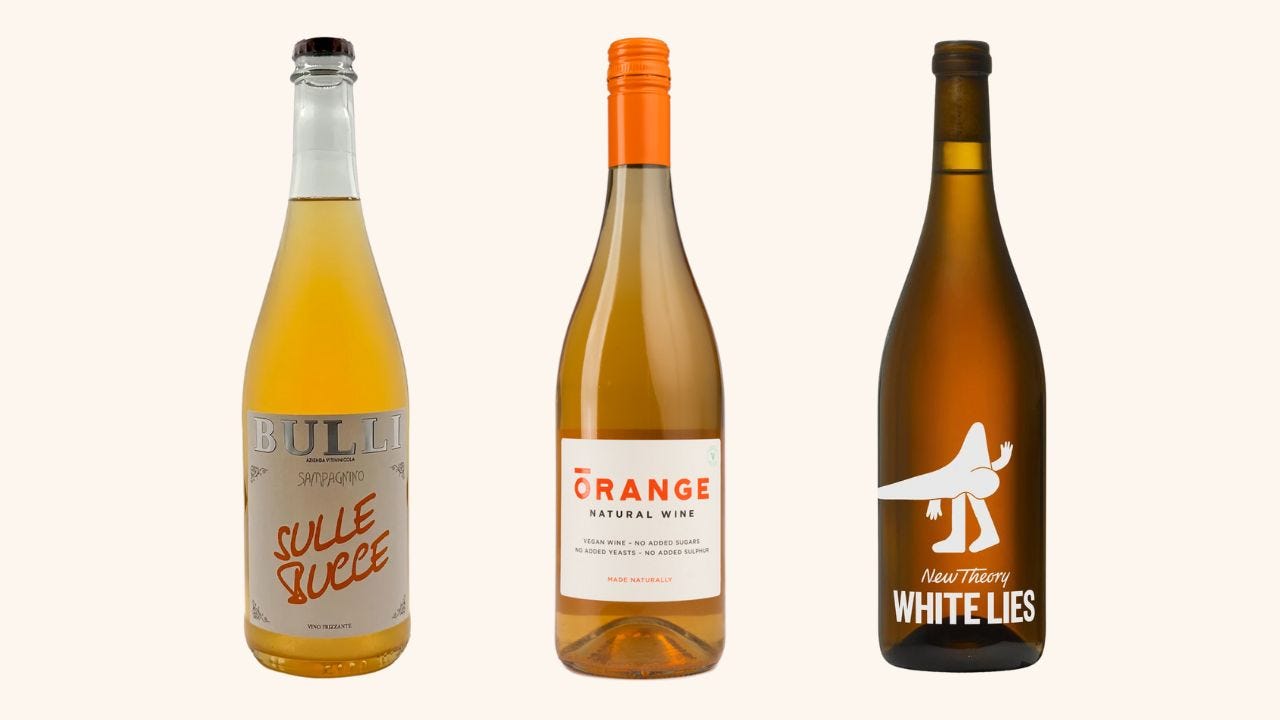What exactly is ‘natural’ wine? Isn’t all wine natural?
You may well ask. ‘Natural’ wine is a philosophy rather than a legally defined term and therefore open to a bit of interpretation BUT the guiding principle is to avoid additives and make the most unprocessed version of a wine possible. What this means in practice is growing grapes without chemicals and not using additives in the winery, so things like powdered tartaric acid to balance acidity, enzymes for stability and the big one - sulphites, which work as antioxidants and antimicrobials but can cause problems for some wine drinkers..
Natural winemakers also tend to use the wild yeasts that are found on the grape skins and in the general environment to ferment the wine rather than shop-bought, commercial versions that have certain approved properties. And as natural wine is not filtered, it can be a bit cloudy or funky with some sediment - literally a wine without a glossy filter!
The unprocessed bit means winemakers pretty much let the wine make itself. Get grapes, crush grapes, leave grapes to ferment, bottle the wine. You may hear the term low-intervention wines and that means precisely this: the wine has seen as few steps and additions as possible, hence it's all made more naturally because the reality is, with the normal wines we’re used to, there can be many more steps and additions, especially in the winery.
So what are natural wines like? Well, in all honesty, this is a style that can really split the judges, partly because it can be hard to know what you’re going to get and because they rarely taste as you would expect classic varieties or blends to taste. They can also be unpredictable, even from within the same batch. What they do all seem to have in common though is an earthy, raw, tanginess that can be quite moreish. Some can be a bit stinky and funky and others are more clean as it were and they’re generally also a bit better for you thanks to a fewer additives, slightly lower alcohol levels and the potential for good gut substances that don’t get filtered out. Many orange wines and ‘Pét Nat’ wines are natural - but not all of them.
Whatever you feel about natural wines, this is how wine always used to be made when it first existed thousands of years ago and there’s a huge movement celebrating natural wine today.
What are your thoughts on any you’ve tasted?
Try These Natural Wines
Orange Wine, Recaş Estate, Romania, 2022
Find it for £11.50-£12.99 at Gusto Wines Adnams Fenwick ClinknDrink
This ravishing Romanian is a great introduction to natural wine and it’s a skin contact, orange wine too - as many natural wines are. Dark gold in colour, think ripe pear and vanilla-scented apple crumble with a bitter, orange peel kick. It’s complex and textured but beautifully fresh with it too.
Sampagnino Sulle Bucce Pétillant Naturel
Find it for £16.50 at purewines.co.uk
Made from ancient varieties within the DOC of Monterosso in Emilia Romagna, Italy, this is a natural, sparkling wine that still has its lees so will be cloudy in the bottle. Think tropical fruit with pineapple and orange peel with a very tangy texture. Great with cold cuts and cheese.
New Theory White Lies Orange Wine
Find it for £16.50 at Ocado
Both an orange wine (skin-contact style) and a natural wine from Stellenbosch, South Africa, this is a flavoursome, very textural wine with notes of pink grapefruit apricot, bergamot and ripe peach. A very moreish style, thai is crying out for halloumi or roast chicken - or even nutty cheese.
Stay tuned and I’ll guide you through organics, biodynamics and orange wine soon! OR you check out my video wine course with its bite-sized videos that answer all these sorts of questions as well as give you a roadmap for where to start when learning about the good stuff!




